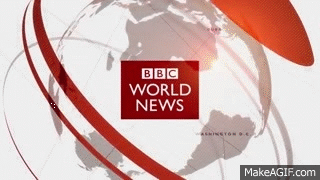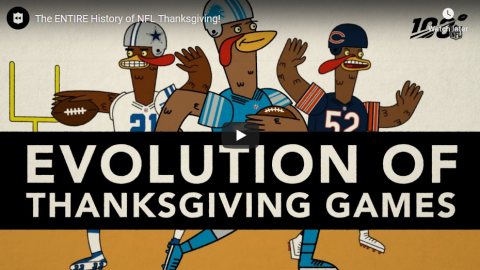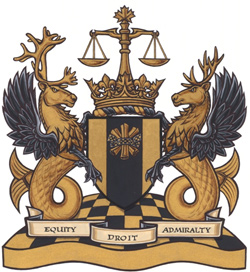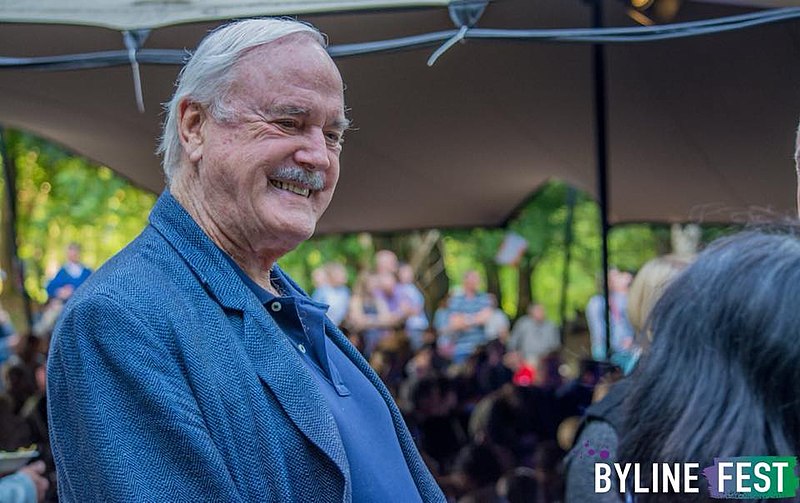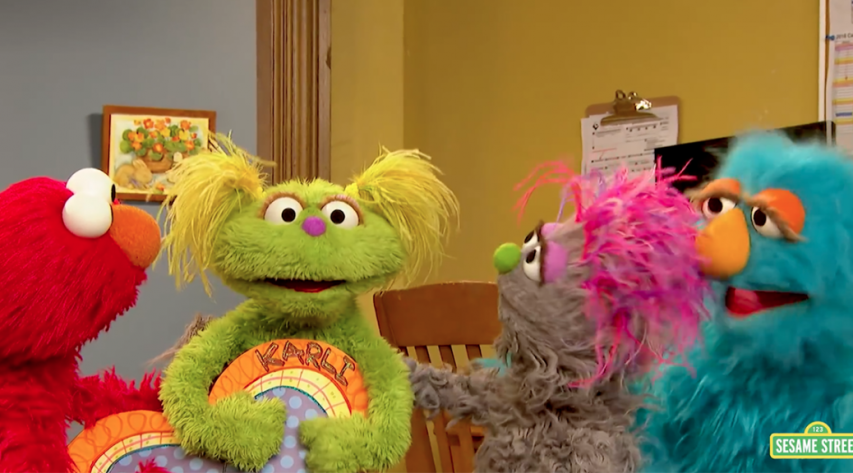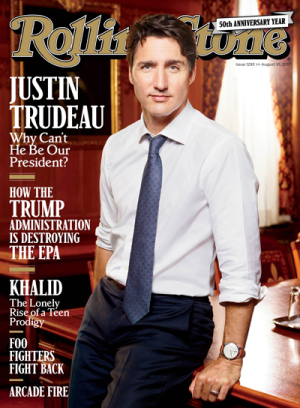Overly Sarcastic Productions
Published 24 Dec 2019Happy holidays, one and all – even those of us from fictional universes where Christmas isn’t celebrated! Let’s celebrate by comparing twelve fictional Definitely Not Christmases and ranking them from lamest to best!
Our content is intended for teenage audiences and up.
PATREON: https://www.Patreon.com/OSP
MERCH LINKS: https://www.redbubble.com/people/OSPY…
OUR WEBSITE: https://www.OverlySarcasticProductions.com
Find us on Twitter https://www.Twitter.com/OSPYouTube
Find us on Reddit https://www.Reddit.com/r/OSP/
December 26, 2019
Top 12 Fictional Pseudo-Christmases
December 21, 2019
Repost – The Monkees – “Riu Chiu”
Uploaded on 15 Dec 2015
The Monkees perform “Riu Chiu” from Episode 47, “The Monkees’ Christmas Show”.
H/T to Kathy Shaidle for the link.
December 15, 2019
Every time the “wrong” side wins an election…
… we get all the media talking about how the winner needs to tack to the left:
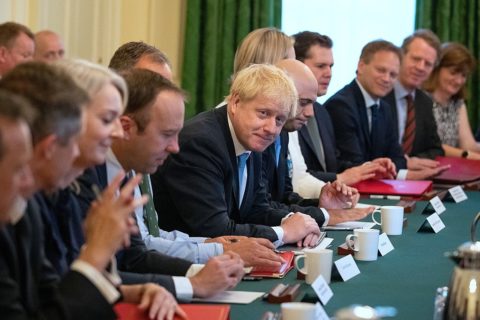
Prime Minister Boris Johnson at his first Cabinet meeting in Downing Street, 25 July 2019.
Official photograph via Wikimedia Commons.
Every single time. Whenever the left is slapped by voters like a bony Antifa moll at a street riot, “expert” analysts rush to the scene of democracy, cordon it off with police tape and announce through a bullhorn that there’s nothing to see here. Move along. They then propose that the winner is morally obliged to sideline the constituency that just elected him and heed the boutique preoccupations of the vanquished instead. Successful right-of-centre candidates must govern for All of Us. Successful leftists, on the other hand, are encouraged to give leftism to the enemy good and hard for the next few-to-several years. Possibly the first man to pull out his ‘horn following Boris Johnson’s emphatic victory is Philip Williams.
The sullen acceptance that Brexit will happen but will unleash crises that – alas – must be solved by a buffoon: check. Schools and hospitals: check. The problem of “an economy excised from Europe”: check. Williams’ piece is the Tate of tropes. But no: Johnson won’t faulter by being true to the shy nationalists who elected him but he might antagonise them by pivoting left to usher Hugh Grant’s coterie into a broader Boris marquee. Given his track record, that is very likely. Let’s not get carried away: Johnson did his Conservative duty regarding Brexit, nothing more. The question is whether or not he has the panache to hold on to his base while trying to expand it. The media will be a huge asset. They are certain to make daily sport of Johnson’s “gaffes,” eccentricities and less than squared away private life. This will endear him to everyman even more.
On the other hand, when the “correct” side wins an election, we’re assured that “elections have consequences”, the’ve been “keeping score”, and that the losers must strap in tight and hold on for dear life because we’re going further left than we ever were promised during the campaign.
Update: Related.
Every US pundit today: pic.twitter.com/smSJRTBQW9
— Luke Savage (@LukewSavage) December 13, 2019
December 4, 2019
Defund the BBC? Well, if you can’t just sack, burn, and salt the earth it stands on, defunding might help
Hector Drummond wonders if the Overton Window has moved far enough that the BBC might lose its sacred status:
In a notorious talk given to Conservative Future in 2009, Sean Gabb made the following radical recommendation:
On the first day of your government, you should close down the BBC. You should take it off air. You should disclaim its copyrights. You should throw all its staff into the street … You must shut it down – and shut it down at once.
I have for many years been torn between thinking this a good idea, and thinking that it would result in such uproar that the government would immediately fall, and be replaced by a new government who would restore the BBC. But the question was purely abstract anyway, because no Conservative government would even contemplate doing such a thing. No Conservative government was even going to contemplate taking away the licence fee.
But finally, after three years of disgraceful conduct — well, extra disgraceful conduct — the future of the BBC is finally an issue that that can be broached. It’s finally an issue that can be talked about without people throwing up their hands in horror and demanding you be thrown out of wherever you are. People will listen sympathetically if you suggest that the BBC can’t go on like it has been. People will join in enthusiastically if you say that Channel 4 is a disgrace that should no longer be state-funded. Well, not if you’re in the common room. But in the ordinary pubs around the country they will. They will at the dinner parties that are being held outside the M25. And even some inside it.
So what should be done? The conventional conservative/libertarian idea is that the BBC should be moved to a subscription model. The more radical Gabb idea is not one that has ever been talked about much. In fact, it’s an idea that until recently would have shocked most people, even most conservatives. (If you read to the end of the Gabb article, you’ll see that the young conservatives were themselves outraged by Gabb’s idea). But actually it’s a very good idea. Because here’s the thing. If you privatise the BBC, it may do very well for itself, and then it would be free to spin the news far more outrageously than it currently does.
More recently than Dr. Gabb, Richard Delingpole made a suggestion that I stole for my headline:
Call me a Radical, but I wouldn’t just stop the licence fee. I’d close down the BBC. Sack everyone. Demolish the buildings. Salt the ground.
— Richard Delingpole (@DickDelingpole) November 24, 2019
So the idea is no longer so alien. Particularly amongst younger people, who just don’t watch the BBC any more. They generally don’t watch much TV at all, they prefer YouTube and TikTok (which are filled with rubbish, it has to be said, but that’s another story), but they especially don’t watch the BBC (or channel 4). So most young people won’t even notice if the BBC is closed down, although about thirty sociology undergraduates will eventually tweet about it once their lecturers tell them what’s happened, and then the Guardian will have a fit and try to make it a big story, but there’ll be no BBC to amplify that, so it won’t be that effective. And the other channels are unlikely to shed too many tears over the shutdown of a subsidised rival (although I expect that the news staff will as they’re all lefties now).
November 28, 2019
The ENTIRE History of NFL Thanksgiving!
NFL Throwback
Published 25 Nov 2019Check out the evolution of NFL games!
#NFL100
The NFL Throwback is your home for all things NFL history.
November 20, 2019
Activist court watch – Federal Court of Canada judge creates new website blocking rules
Michael Geist on the precedent-setting decision from the Federal Court of Canada:
A Federal Court of Canada judge issued a major website blocking decision late Friday, granting a request from Bell, Rogers, and Groupe TVA to block access to a series of GoldTV streaming websites. The order covers most of the Canada’s large ISPs: Bell, Eastlink, Cogeco, Distributel, Fido, Rogers, Sasktel, TekSavvy, Telus, and Videotron. The case is an important one, representing the first extensive website blocking order in Canada. It is also deeply flawed from both a policy and legal perspective, substituting the views of one judge over Parliament’s judgment and relying on a foreign copyright case that was rendered under markedly different legal rules than those found in Canada.
Perhaps most troubling is that the judge has created a substantive new policy framework for site blocking, an issue that given the many complex policy issues (including copyright enforcement, freedom of expression, net neutrality, and telecom competition) is best left to Parliament. Indeed, the activist judicial approach explicitly engages in an analysis that considers many of the policy issues but arrives at its own conclusion about how best to balance competing interests. These are issues that are best left to elected officials. The Standing Committee on Industry, Science and Economic Development, which completed the comprehensive copyright review earlier this year, heard extensive submissions from groups calling for reforms to the law to include site blocking. It instead recommended:
Following the review of the Telecommunications Act, that the Government of Canada consider evaluating tools to provide injunctive relief in a court of law for deliberate online copyright infringement and that paramount importance be given to net neutrality in dealing with impacts on the form and function of Internet in the application of copyright law.
In other words, the committee recommended holding off on a site blocking rule until further study is conducted. Moreover, it concluded that “paramount importance be given to net neutrality.” The judge in GoldTV acknowledged that there were net neutrality concerns (rejecting claims that “net neutrality is of no application where a site blocking order is sought.”), but concluded that the net neutrality issues did not tip the balance against granting the injunction. Not only is that inconsistent with the copyright review emphasis of paramountcy for net neutrality, but it represents the judge making a policy choice best left to elected officials.
The CRTC, which rejected a proposal for an administrative site blocking system in the FairPlay case, also thought the issue was best left to the government. Its ruling specifically cited the copyright review and the review of the Broadcasting and Telecommunications Act as avenues to address the issue. In other words, the appropriate venue to consider site blocking was government, not an administrative agency.
November 17, 2019
November 2, 2019
When entertainment morphs into propaganda
One of the key elements aiding Hitler and the NSDAP to take power and stay in power in Germany in the 1930s was the constant, ongoing propaganda campaign orchestrated by Joseph Goebbels. Hitler and the Nazi party were lauded as the perfect Germanic solution to every problem and Jews, socialists, homosexuals, and other undesireable elements were belittled and used as targets of hate. A big part of Goebbels’ propaganda revolved around one idea, the “Big Lie”:
If you tell a lie big enough and keep repeating it, people will eventually come to believe it. The lie can be maintained only for such time as the State can shield the people from the political, economic and/or military consequences of the lie. It thus becomes vitally important for the State to use all of its powers to repress dissent, for the truth is the mortal enemy of the lie, and thus by extension, the truth is the greatest enemy of the State.
By suppressing competing voices and having all the methods of reaching the people repeating the same story, the Nazis solidified their control on power in Germany that lasted until 1945, and was only demolished by massive military effort by the United States, the Soviet Union, and the British Commonwealth. Propaganda is a very powerful tool that works distressingly well to implant and nurture evil ideas in a subject population.
Modern propagandists in the west generally don’t have the power of the state aiding them, but if they get enough of the channels of communication — especially the entertainment channels — to co-ordinate the message, the effects can be very strong:
… I perfectly understand the legitimacy of feminist concerns regarding the portrayal of women in the media as consistently demure, retiring, and subservient to men. I grant that, in most of the action/adventure movies that I saw growing up, women would typically twist an ankle or get captured and then require rescuing by the swashbuckling male hero — and I realize how galling this must have been to generations of women. And therefore, a certain correction was undoubtedly in order. But what is problematic now is the Nietzschean quality of the reaction, by which I mean, the insistence that female power has to be asserted over and against males, that there is an either/or, zero-sum conflict between men and women. It is not enough, in a word, to show women as intelligent, savvy, and good; you have to portray men as stupid, witless, and irresponsible. That this savage contrast is having an effect especially on younger men is becoming increasingly apparent.
In the midst of a “you-go-girl” feminist culture, many boys and young men feel adrift, afraid that any expression of their own good qualities will be construed as aggressive or insensitive. If you want concrete proof of this, take a look at the statistics contrasting female and male success at the university level. And you can see the phenomenon in films such as Fight Club and The Intern. In the former, the Brad Pitt character turns to his friend and laments, “we’re thirty year old boys;” and in the latter, Robert De Niro’s classic male type tries to whip into shape a number of twenty-something male colleagues who are rumpled, unsure of themselves, without ambition — and of course under the dominance of an all conquering female.
It might be the case that, in regard to money, power, and honor, a zero-sum dynamic obtains, but it decidedly does not obtain in regard to real virtue. The truly courageous person is not threatened by another person’s courage; the truly temperate man is not intimidated by the temperance of someone else; the truly just person is not put off by the justice of a countryman; and authentic love positively rejoices in the love shown by another. And therefore, it should be altogether possible to hold up the virtue of a woman without denying virtue to a man. In point of fact, if we consult the “all conquering female” characters in films and TV, we see that they often exemplify the very worst of the traditional male qualities: aggression, suspicion, hyper-sensitivity, cruelty, etc. This is what happens when a Nietzschean framework has replaced a classical one.
My point is that it is altogether possible — and eminently desirable — to say “you go boy” with as much vigor as “you go girl.” And both the boys and the girls will be better for it.
October 19, 2019
October 13, 2019
Sesame Street finally gets real
I think we can all agree that the problem with children’s TV is that it’s not gritty and realistic enough for the children of today. Well, the situation is being addressed by those brave folks who produce Sesame Street:
Sesame Street has introduced Karli, a puppet whose mother is addicted to opioids. I applaud them. For too long, children’s shows have been bright, happy, colourful and filled with problems that can be easily resolved. It’s time we saw the alleys and overflowing gutters behind the buildings of Sesame Street — the suicides, prostitution and addictions that run rampant after the sun sets. It’s time children learned about real life. It’s time children learned about flesh-eating diseases, absent fathers, and the unforgiving cycle of life. That their heroes are frauds and everyone dies, including their favourite pets and all their hopes and dreams.
It’s time children learn why people are drawn to heroin in the first place. That life can be so crushing and hopeless that the only other answer is death. It is time children learn that although on the outside the heroin addict may look sick, miserable, terrifying and disgusting, inside they feel better than you will ever know. That the feeling is so good inside, the addict forgets about the vessel and the outer part of the body slowly begins to slip away. From the outside it is hard to watch a heroin addict slowly deteriorate, and even harder to imagine how someone could let themselves fall into that state. But inside they feel perfect. Religion, spirituality, and gurus have often spoken of finding inner peace and joy, and there is no peace within as perfect as the high of heroin.
It is a feeling so good it makes parents neglect their children, as in Karli’s case. A feeling so good the user forgets everything — everything bad, and everything good. It is better than the feeling of accomplishing goals, of success or love. It is perfect — that is until it fades away. So, you chase that perfect feeling for the rest of your life, getting close, but never quite attaining it again. You chase forward, day after day, as everything around you slowly slips away, your youth, your family, your hopes and your dreams.
Modern journalism encompasses “activism,” “advocacy,” “partisanship,” “satire,” “hoaxing,” “unbearable self-promotional bluster,” “pranks,” “torquing of facts,” “invective,” “demagoguery” and “stunts”
I’ve always been pretty cynical about the media, so it was no surprise to me when the federal government decided to start explicitly subsidising the rest of the media (they already fund the CBC), and part of the fun was deciding who qualifies for those juicy subsidies. I mean, “journalism” today is a pretty broad category that covers a lot more than the traditional TV, radio, magazine, and newspaper formats. I’m sure everyone is shocked — Shocked! — to discover that the government is playing favourites among the many media outlets over not just who gets subsidies, but even who gets accredited to cover political events.

Jack Layton, leader of the federal New Democratic Party of Canada, on January 2, 2006 in a media scrum outside a campaign rally at the Kent Street legion in Ottawa, Canada.
Photo by Thorfinn Stainforth via Wikimedia Commons.
As we’re in the late stages of a federal election campaign, the question of who is considered to be a “journalist” merits closer attention, as Colby Cosh explains:
Two media outlets of a right-wing character, Rebel Media and the True North Centre for Public Policy, have been denied accreditation for post-debate press appearances at the last minute. The Parliamentary Press Gallery, acting on behalf of the federal Leaders’ Debates Commission, has somehow decided that their delegates are advocates rather than journalists. Oh-ho.
Here, an agent of the state seems to have pushed the “So who’s a journalist?” question really to the forefront, and introduced a distinction between journalism and activism that may not be tenable. The history and practice of journalism, even at the highest levels of public and professional esteem, includes entities and activities that fall into all of the following categories: “activism,” “advocacy,” “partisanship,” “satire,” “hoaxing,” “unbearable self-promotional bluster,” “pranks,” “torquing of facts,” “invective,” “demagoguery” and “stunts.”
If we must march toward state licensing of journalism in double-quick time, and this seems to be happening whether I like it or not, arguments about the definition of journalism will have to recognize these realities. But, of course, the word “journalism” as used from day to day is mostly just a status marker (really, a label concocted for academic use). “Journalism” will resist any historically aware attempt to bound it with a list of scientific-type taxonomic criteria.
This, of course, does not rule out an ignorant or fanciful attempt to set criteria. But most of the concepts in the list I made above, a list of things some people would like to exclude from journalism, are themselves ideas founded on fuzzy judgments of value, or of mere taste.
The media outlaws who found the debate gates shut in their faces got together and sought an injunction requiring the commission to allow them to appear in the magic chamber of questions after the debate. No one had really explained the decision to exclude them; no one could point to a solid pre-existing definition of journalism that they did not meet (surprise!), or to a relevant formal policy of the commission. It really gets the attention of a judge when the state behaves in an arbitrary way, and this proved to be the case, foreseeably, at the oral hearing for the injunction. Which was granted.
But an injunction is a temporary emergency remedy that does not require a full hearing of the facts — only the possibility of immediate incorrigible harm. The question haunting the Dominion — the question of who is a journalist — remains athwart our path.
October 3, 2019
QotD: Media coverage of Liberal and Conservative scandals, respectively
In the Canadian election, Justin Trudeau’s Liberal Party has unveiled the centrepiece of its platform:
A re-elected Liberal government [will] expand the Learn To Camp program.
Under the Learn To Camp program, every Canadian will be provided with a tub of boot polish, a novelty turban, a jewel to stick in your belly button, and genie slippers with curly toes, and trained how to swish across a Vancouver ballroom while asking other guests to tally your banana.
Oh, wait, sorry, that was last week’s Justin story. In America a ten-minute phone call to some fellow in Kiev is all the pretext you need for two years of multi-million-dollar investigation. But in Canada the news that the Prime Minister has spent half his adult life as the world’s wokest mammy singer is just a blip in the day’s news cycle, soon to be supplanted by a genuinely eye-catching scandal such as whether or not the Tory leader had a valid license from the Insurance Councils of Saskatchewan or the Canadian Association of Insurance Brokers back in 1997, or 1978, or whenever. You can understand why the Canadian media would rather stampede after the Andrew Scheer scandal: what journalist with a nose for a great red-meat story wouldn’t prefer chasing down the officially approved accreditation from the Department of Paperwork’s archives than, say, the fruiterer who supplies the Prime Minstrel with his trouser bananas. Was Justin accredited by the Minstrelsy Council of Quebec or the Canadian Association of Burnt Cork Fetishists? Would that make the story more interesting for the CBC et al?
The Toronto Star, like all good government-subsidized Canadian media, has been doing its best to neutralize the mammy songs. The most potentially damaging of the three (so far) blackface incidents is the middle one – a grainy video from the 1990s showing Boy Justin capering about like an ape. So the Star set its crack investigators on the story and tracked down a much better version of the video, and conclusively proved that Tories were misleading the public when they claimed that the Prime Ministrel in blackface, blackarms, blacklegs and blackwhatever-other-appendage was wearing a T-shirt with a banana on it. After all, the banana would imply Justin is a racist who likens black people to monkeys. Whereas prancing around in full-body blackface waving your arms and sticking your tongue out implies no such monkey-like slur.
So the Star‘s new HD minstrel video is of sufficient quality to show that the banana on the T-shirt is, in fact, the beak of a toucan. Unfortunately, the new video is also of sufficient quality to show that the banana is instead stuffed down Justin’s trousers. That risks suggesting the Prime Minstrel is exploiting old white neuroses about the black man’s sexual prowess. But don’t worry – The Toronto Star is only a day or two away from a full-page exclusive asserting that the Negro, impressive though his endowments be, pales in comparison to the average Quebec high-school drama teacher: When Rastus makes the mistake of appearing on stage next to Justin, he’s the one who needs the banana. Not for nothing is Quebec’s provincial dialect called joual, derived from cheval, as in horse.
Mark Steyn, “Blackface Narcissus”, Steyn Online, 2019-09-30.
September 28, 2019
American politics as reality TV … maybe “reality” is a bit generous
At Catallaxy Files, John Comnenus guest-posts on The Trumpman Show of US politics:

Donald Trump addresses a rally in Nashville, TN in March 2017.
Photo released by the Office of the President of the United States via Wikimedia Commons.
Politics is reality television, especially American politics where a cast of a dozen contest the primaries. Like a good reality television show, there are set events and episodes, such as debates and primaries, where the weaker contestants are gradually knocked out until one emerges to fight the other side for the ultimate prize – the Presidency.
Reality television shows typically assemble a cast of mismatched characters who bond together and feud amongst each other over tasks that are assigned by the script writers and star. They inject challenges into the cast to create tension and drama that changes the cast’s allegiances and relationships in a way that engages the audience and leads to a cast member(s) being removed from the show.
Donald Trump produced and starred in the highly successful reality television show, The Apprentice, for 11 years. I believe Donald Trump is the first politician to conduct politics as if it were a reality television show. Rudolph Guliani claims the Ukraine story, which blew up this week, was a trap laid for the Democrats who walked straight into it. Trump knew the cast of Democrat Congressmen and Presidential candidates couldn’t resist the challenge Trump injected into the cast.
Succeeding in reality television is about timing that creates the drama that engages the audience and gradually removes cast members. So why inject this Ukraine story now? I suspect Trump injected this script item into the Democrat Party cast now to ensure that he dramatically realigns the cast’s relationships and allegiances as they go into primary season. He wants to do this by removing the front runner. If I am right, Trump wants a viciously divided Democratic Party Convention that can barely stand the nominee the Party selects as the Democratic challenger to Donald Trump.
The Ukraine trap effectively knocks Biden out of the race – he can’t go to a debate with highly credible and growing allegations of corruption swirling around him. The Democrat establishment will ensure he retires for “health reasons” to avoid Democrat corruption dominating the next debate. So the 20%-25% of Democrats who previously supported Biden will need to cast their lot with another candidate. But who?
September 15, 2019
Why the national polls are, at best, only a rough guide to voters’ intentions
Canadian elections have their own quirks — historical, geographical, linguistic — that cannot be accurately captured in national opinion polls:
Conservative support is heavily concentrated in Alberta and Saskatchewan. Tens of thousands of its votes are therefore likely to be wasted racking up massive majorities in a relatively small number of seats.
The Liberal vote, by contrast, is more efficiently distributed, notably in Quebec, with its tight three- and four-way races, where a winning candidate might slip through with 30 per cent of the vote or less. So even though the Liberals are projected to win fewer votes than the Conservatives, they are also projected to win a solid plurality of the seats — perhaps even a majority.
Then again, the polls are misleading in another way. A poll can project, with some uncertainty, the level of support for the various parties among the voting-age population. It is a more difficult matter to predict what proportion of each party’s supporters will actually turn out to vote. The Liberals benefited in 2015 from a surge in turnout, especially among younger voters, on the strength of Justin Trudeau’s sunny idealism. No such enthusiasm, or idealism, is detectable this time around.
It all makes for a close, unpredictable race. The Liberal challenge is the usual one: to round up the vote on the left without giving too much ground on the centre, appealing to those tempted to vote NDP or Green not to split the progressive vote lest the Tories get in.
The Conservatives, for their part, will also be fighting a two-front war, with the emergence of the People’s Party to their right imposing some constraint on their ability to reach across the centre. To date the PPC has not posed much of a threat — its support has stalled at around 3.0 per cent — but it is not impossible that it could break out of that range now that voters are paying more attention.
Of course, Maxime Bernier being actively excluded from the debates, and the pollsters often not including a choice for the PPC will also limit the PPC’s visibility to ordinary Canadian voters. Oddly, this may benefit the Milk Dud and his “Conservatives”, as the media tries to ignore Bernier’s party but gives disproportional coverage to the Green and NDP campaigns, which potentially weakens support for Trudeau and the Liberals.
Update, 16 September: I guess the media finally noticed that excluding Maxime Bernier from the debates was a sub-optimal idea for their preferred winner (Justin Dressup).
The Leaders' Debates Commission (@debats_can) has invited @MaximeBernier to the Commission’s debates on October 7 and 10 #cdnpoli https://t.co/1ZGAZRO7KU
— Power & Politics (@PnPCBC) September 16, 2019
September 5, 2019
Phony Trudeaumania has bitten the dust
Nico Johnson discusses the dangers of family dynasties in democratic countries:
When future political historians look back at the 21st century, Justin Trudeau’s election as a Liberal leader may be regarded as a bland footnote. Despite all the hope Trudeau brought Canadians in his once seemingly eternal, post-election honeymoon, his leadership inevitably toppled into a swamp of sticky scandals and hurried apologies.
Justin Trudeau may still be re-elected. However, the Conservatives can rest easy in the knowledge that Trudeaumania, at least for this current Trudeau, is well and truly dead.
What is noteworthy, however, is the atmosphere of surprise and confusion that has clouded commentators’ judgements surrounding the downfall of Trudeau. In the corridors of Ottawa’s broadcasters, it may have appeared absurd that natural political decline should apply to their darling Prime Minister; the leader of the “woke world.”
Trudeau’s appearance of invincibility, which still makes these commentators swoon (note the SNC-Lavalin coverage) was first created in those blue-skied months following his leadership election in 2013.
Perhaps Justin, with his charisma and handsomeness, seemed like a breath of fresh air to Canadian progressives. Gone were those days of Ignatieff, the drooling philosopher, who rather spectacularly (considering his semi-illiterate predecessor) lost 43 seats forcing the Liberals into third-party status.
With Trudeau’s leadership, the Liberal party would have a candidate who seemed so perfect for Canadian political life that even a eugenicist would struggle to replicate it. With his status as an Anglophone-Quebecois, which managed to pacify the sensibilities of English Canada, whilst having his Quebecois heritage to maintain seat-rich Quebec—Trudeau must have seemed like a divine gift.
Yet even in those early days, Trudeau lacked noticeably in the fundamental requirements that statesmanship should necessitate. He had no political experience after being almost casually elected to the House of Commons. Nor did he possess any working experience, and had been entirely unknown to the Canadian public until the eulogy at his father’s funeral. To put it quite simply, Justin Trudeau would have never become Prime Minister of Canada if his father, Pierre, had not been one too.



